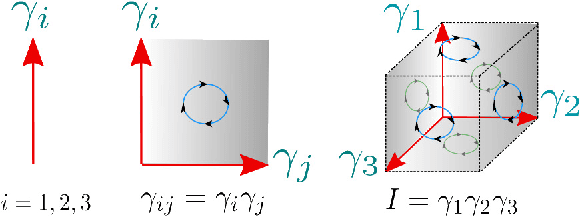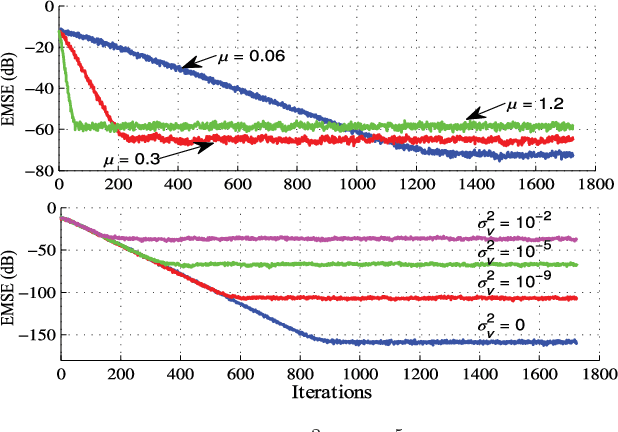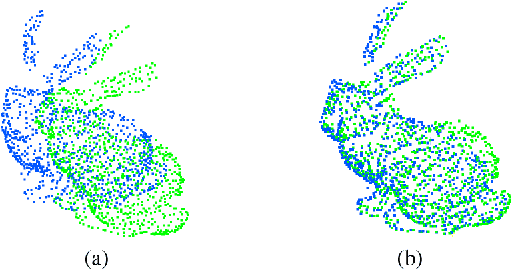Geometric-Algebra LMS Adaptive Filter and its Application to Rotation Estimation
Paper and Code
Jan 22, 2016



This paper exploits Geometric (Clifford) Algebra (GA) theory in order to devise and introduce a new adaptive filtering strategy. From a least-squares cost function, the gradient is calculated following results from Geometric Calculus (GC), the extension of GA to handle differential and integral calculus. The novel GA least-mean-squares (GA-LMS) adaptive filter, which inherits properties from standard adaptive filters and from GA, is developed to recursively estimate a rotor (multivector), a hypercomplex quantity able to describe rotations in any dimension. The adaptive filter (AF) performance is assessed via a 3D point-clouds registration problem, which contains a rotation estimation step. Calculating the AF computational complexity suggests that it can contribute to reduce the cost of a full-blown 3D registration algorithm, especially when the number of points to be processed grows. Moreover, the employed GA/GC framework allows for easily applying the resulting filter to estimating rotors in higher dimensions.
 Add to Chrome
Add to Chrome Add to Firefox
Add to Firefox Add to Edge
Add to Edge